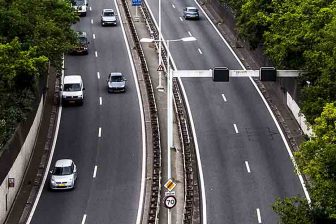CoR: implementation Green Paper on Urban Transport local
Committee of the Regions welcomes Green Paper on Urban Transport – implementation must remain in hands of local authorities
Brussels, Belgium – The Committee of the Regions (CoR) has called for greater coordinated action to tackle the problems of transport congestion and increasing pollution in cities in a report adopted at its plenary session in Brussels yesterday (9 April). The report, presented by Sir Albert Bore (PES/UK), highlights the need for a more integrated approach across all levels of government, with the EU assuming a more significant role, while local and regional authorities must retain control over developing and implementing practical solutions.
Responding to the European Commission’s Green Paper for Urban Transport, the CoR opinion emphasises that environmental problems continue to hinder EU efforts to raise the competitiveness of the European economy and foster sustainability. Whereas cities and urban areas offer the potential to boost economic growth and tackle climate change, measures must be taken to improve accessibility, social cohesion and reduce pollution levels.
Sir Albert, Opposition leader of Birmingham City Council, urges the EU to encourage regions and cities to tackle the problems by adopting long-term mobility plans to deal with congestion and pollution and develop alternative methods of transport to provide choice for travellers, and make inner-city transport more sustainable. These non obligatory mobility plans of regions and cities could also form the basis of mobility agreements (in contracts) between major stakeholder partners.
In his report, Sir Albert recognises the need for increased expenditure and recommends that the EU works in closer collaboration with the European Investment Bank in order to develop innovative financial instruments capable of funding the necessary sustainable mobility infrastructure and investment in low carbon vehicles.
One idea is the introduction of "clear zones", designated areas with low levels of pollution and congestion, which aim to encourage innovative urban design, traffic reduction measures and priority for sustainable transport, and the award of "clear zone" status along the lines of the EU-wide Blue-flag scheme.
The CoR insists that despite successful action in individual cities, a more effective overall strategy is required, with the EU playing a greater role while local and regional authorities are given the responsibility for adopting specific solutions for the environmental and congestion challenges.
The CoR also calls for an EU reporting mechanism to be established in order to provide feedback on progress. Sir Albert’s report suggests that this process could be introduced through an EU-funded benchmark study looking at cities across the EU and their approaches to meeting these challenges.
The Committee of the Regions
Around two-thirds of EU legislation is implemented by local and regional authorities in Member States. The Committee of the Regions is a consultative body, which was created in 1994 to give representatives of local government a say over the content of these laws. The CoR organises five plenary sessions a year, where its 344 members vote on reports, known as opinions, issued in response to proposed legislation. The European Commission, which initiates EU laws, and the Council of Ministers, which determines the final content of the legislation (usually in tandem with the European Parliament), are obliged to consult the CoR on a wide range of policy areas including the environment, employment and transport. The UK is represented by 24 members on the CoR.
Additional background information (provided by Infrasite’s Editorial Staff)
Green Paper urban mobility adopted
U las zojuist één van de gratis premium artikelen
Onbeperkt lezen? Profiteer nu van de introductieaanbieding voor € 10,- per maand.
Bent u al abonnee?



